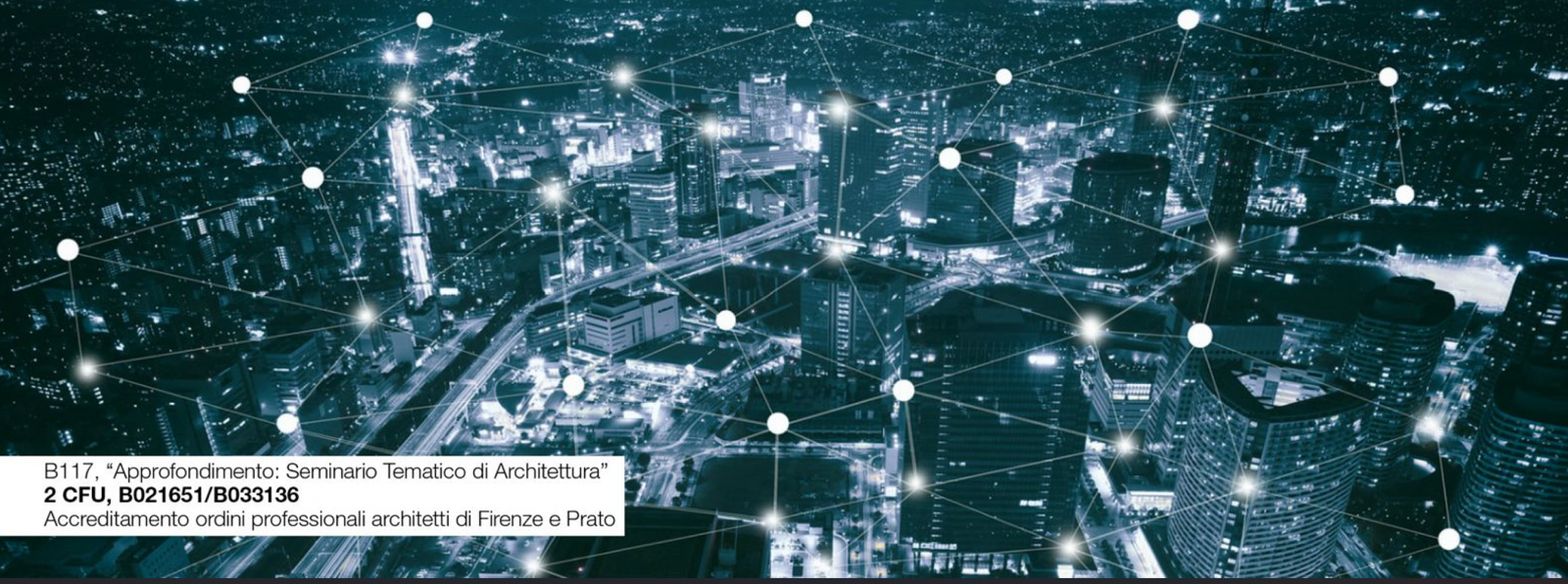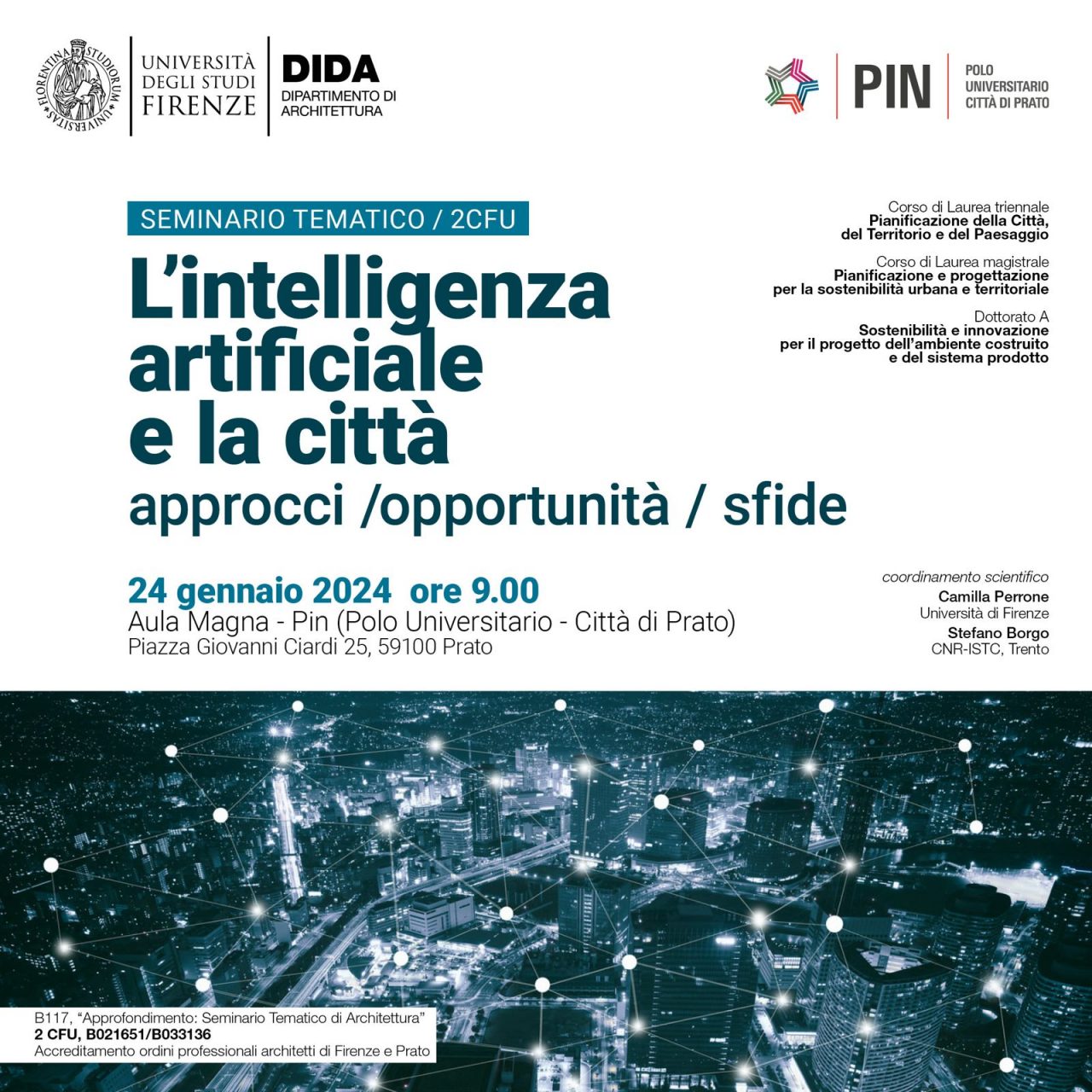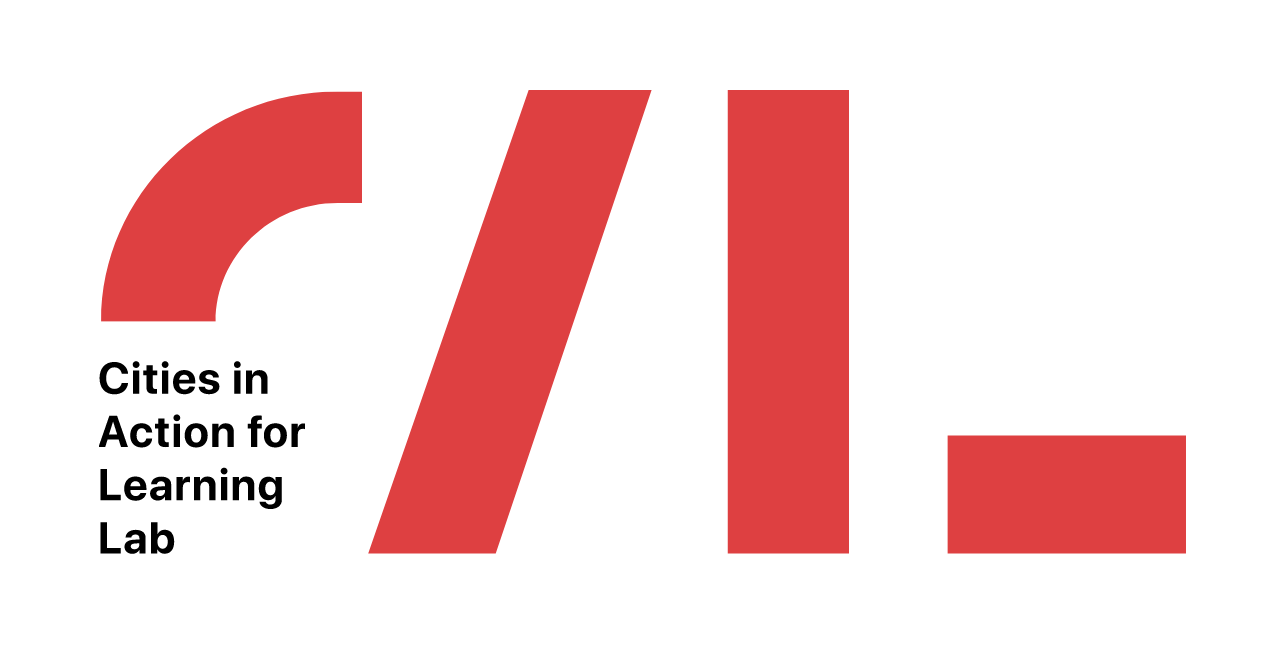
L’intelligenza artificiale e la città
Envisioning Translocality
Enabling Institutions
Enforcing Practices
“Embarking on research endeavors focused on intelligence entails delving into the heart of cities.” This compelling message was conveyed by Dino Borri to all participants of the “Artificial Intelligence and Planning” workshop organized by Camilla Perrone in Prato on January 24, an event where Grazia Concilio had the honor of being one of the speakers. The workshop proved to be an enriching experience, bringing together a diverse array of expert voices and fostering engaging dialogues. Artificial Intelligence and Planning, forming a conceptual/theoretical binomial, give life to a very productive scientific interplay. These two fields of scientific investigation converge at the intersection of knowledge and action —a perpetual theoretical/practical “drama” that shapes planning, as well as a focal point of development in Artificial Intelligence
Cities, intricate socio-technical systems, necessitate an inevitable reference to complexity theory for any analysis or action. The evolution of complexity theory draws inspiration initially from Systems Theory and subsequently from the Theory of Communicative Action. In the face of contemporary socio-environmental crises, there is a call for Multiagent models and theory to accommodate different intelligences: human, non-human, biotic, and abiotic agents, with climate emerging as a paramount hybrid intelligence that demands consideration. Multiagency standing as a pivotal milestone in the realm of Artificial Intelligence.
It is not imperative for planners to transform into AI experts or coders. However, it remains equally true that “eschewing discourse on the interplay between AI and planning may inadvertently expose planning to the negative and ambiguous impacts already generated by AI—a reality more evident than ever before.” Planners and planning agencies are entrusted with the responsibility of navigating these risky and ambiguous perspectives to harness the positive implications of AI. Acknowledging that AI can operationalize and facilitate an unbiased perspective on complexity while viewing cities as knowledge spaces as well as realms for knowing.

